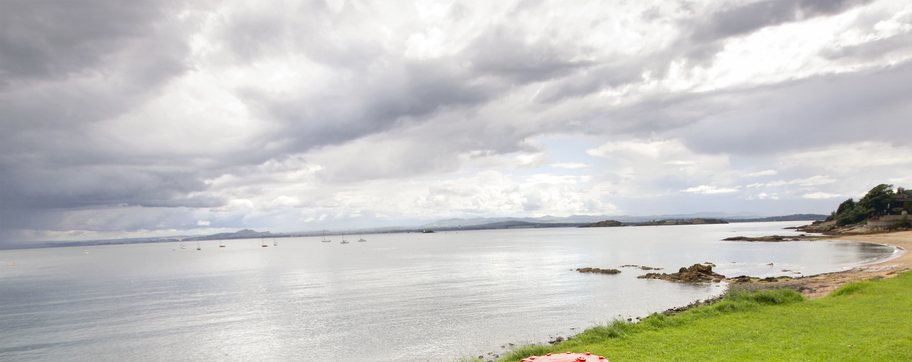The Metaphor of Reclamation
We live on the banks of the River tay in Scotland. Not far
from our home is the landing strip of Dundee airport. This was once
submerged beneath the estuary but, over many years, was gradually
drained, and protected from further flooding by a sea wall. What
once was lost from view - indeed was viewed as useless - was brought
into view, and transformed into something of great value. This work
was accomplished slowly, with great effort and skill, not to mention
at some considerable risk to the people involved.
This
provides a fitting metaphor for the process of reclamation that is
possible for those whose lives have been submerged by the experience
of madness. The old English term madness evokes the range and depth
of the disruption involved. In reclaiming their lives from the
waters of madness, people bring to the surface a person who has, to
large extent, been lost from view: Lost from the sight of family and
friends if not also from themselves.
Reclaiming Our Humanity
When people enter mental health services their personal identity
is submerged - not so much by the experience of madness (or mental
health problems), as by bureaucratic labelling. They cease to be
'persons', with their own lives, loved ones and hopes and dreams,
and become 'patients', 'clients' or 'service users'. These make the
individual anonymous; just another 'patient', or 'client' or
'service user'.
If people are to recover their lives, the
first thing they need to do is to reclaim the stories of their
lives. These stories belong to them as unique persons, not anonymous
'service users'!
The Challenge of Reclamation
When
people reclaim their lives, they are required to undertake the
lengthy, difficult and often threatening process of draining the
effects of madness from their lives; transforming something that
once was thought to be both meaningless and worthless, into
something of great value if not priceless.
We have met and
worked with many people over the years who have helped us understand
what the process of reclamation might entail. They helped us
appreciate the personal and interpersonal effort involved, but also
how the reclamation attitude contrasts with traditional ideas of
helping the so-called ‘mentally ill’. Most of all they reminded us
that we are all in recovery. We are all struggling with something -
perhaps a variety of things - that haunt us, limiting our capacity
for becoming fully human.
Hopefully, in your experience of
working with the Tidal Model, you will meet people who are involved
in reclaiming their stories, and thus beginning to recover the whole
of the lives that were lost from view. We hope, also, that you will
become more aware of your own losses, that may need reclaiming, as
part of your own recovery voyage.






